Marshall McLuhan: Counterblast (1954–) [English, Spanish]
Filed under book | Tags: · information, mass media
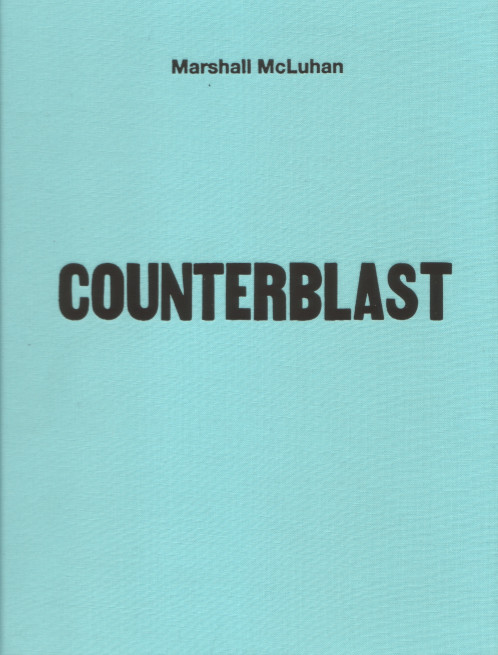
“In 1969 Marshall McLuhan observed that “today we live invested with an electric information environment that is quite as imperceptible to us as water is to a fish.” He was convinced that the new electronic media shape not only the information they convey but also our very consciousness and that in order to actually perceive this a counter environment is needed.
To demonstrate his point McLuhan wrote Counterblast. More a manifesto than a book, Counterblast is a typographically explosive compilation of short essays and probes (complex ideas compressed into a few thought-provoking words), all of which focus on the effects of media on the human condition. It could be seen as a compilation of bold headlines and it is hauntingly prescient, as this superbly reproduced facsimile of the original edition will affirm.
In true McLuhan style the title ‘COUNTERBLAST’ is a play on the word ‘BLAST,’ the name given to a magazine designed by Wyndham Lewis in 1914 and the first publication ever to be set in heavy headline type, albeit in the face of enormous resistance from the London printing establishment who considered it anti-literary. McLuhan never wanted Counterblast to be perceived as literature, but rather a series of headlines as icons.”
This special edition was published on the occasion of transmediale.11 Response:ability festival, Berlin, 2011.
Foreword by W. Terrence Gordon
Afterward by Elena Lamberti
Publisher Transmediale, festival for art and digital culture, Berlin, in cooperation with Gingko Press
ISBN 9781584234562
Elena Lamberti about McLuhan (video)
publisher
publisher of the previous edition
Counterblast (English, 1954/2011 edition)
Counterblast (English, 1970 edition, via aphasic-letters.com)
Contraexplosión (Spanish, trans. Isidoro Gelstein, 1971, no OCR, added on 2013-11-22)
Deciphering User-Generated Content in Transitional Societies: A Syria Coverage Case Study (2012)
Filed under report | Tags: · activism, journalism, mass media, social media, syria
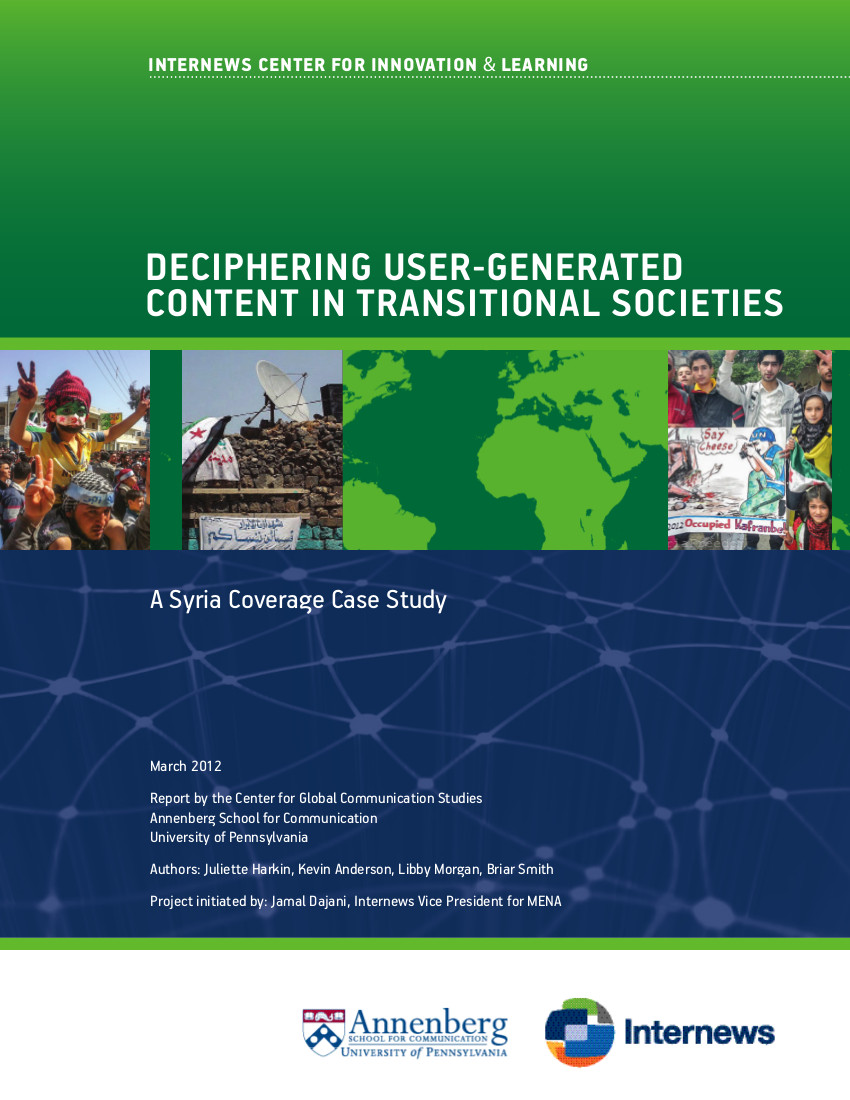
“Social media and user-generated content played an important role in coverage of the revolutions in Egypt, Tunisia and Libya; however, content from the public was supplementary to traditional newsgathering in media coverage.
By contrast, in Syria, with the tight control and exclusion of foreign media, news organizations had to rely almost exclusively on user-generated content, particularly in the early months of the uprising. Much of the user-generated content used by news outlets came via Syrian activists inside Syria and in exile.
To examine how user-generated content has been integrated into prominent Arab-language news organizations, Internews commissioned and collaborated with the Center for Global Communication Studies to produce Deciphering User-Generated Content In Transitional Societies: A Syria Coverage Case Study which looks closely at how BBC Arabic and Al Jazeera Arabic used social media, photos and videos taken by members of the public to provide coverage of the uprising in Syria, particularly in the early days of the uprising.
Based on research conducted over a 12-week period between November 2011 and January 2012, this study employed a qualitative, mixed method approach using literature review, in-depth interviews with 19 media practitioners, academics, activists and commentators; and, a content analysis of the news and current affairs output of BBC Arabic and Al Jazeera Arabic, focusing on three major events at different stages of the Syrian revolt.”
March 2012
Report by the Center for Global Communication Studies, Annenberg School for Communication, University of Pennsylvania, commissioned by Internews
Authors: Juliette Harkin, Kevin Anderson, Libby Morgan, Briar Smith
40 pages
Adbusters, 90-99 (2010-2012)
Filed under magazine | Tags: · activism, advertising, culture jamming, ecology, graphic design, mass media, occupy movement, politics, protest, visual culture
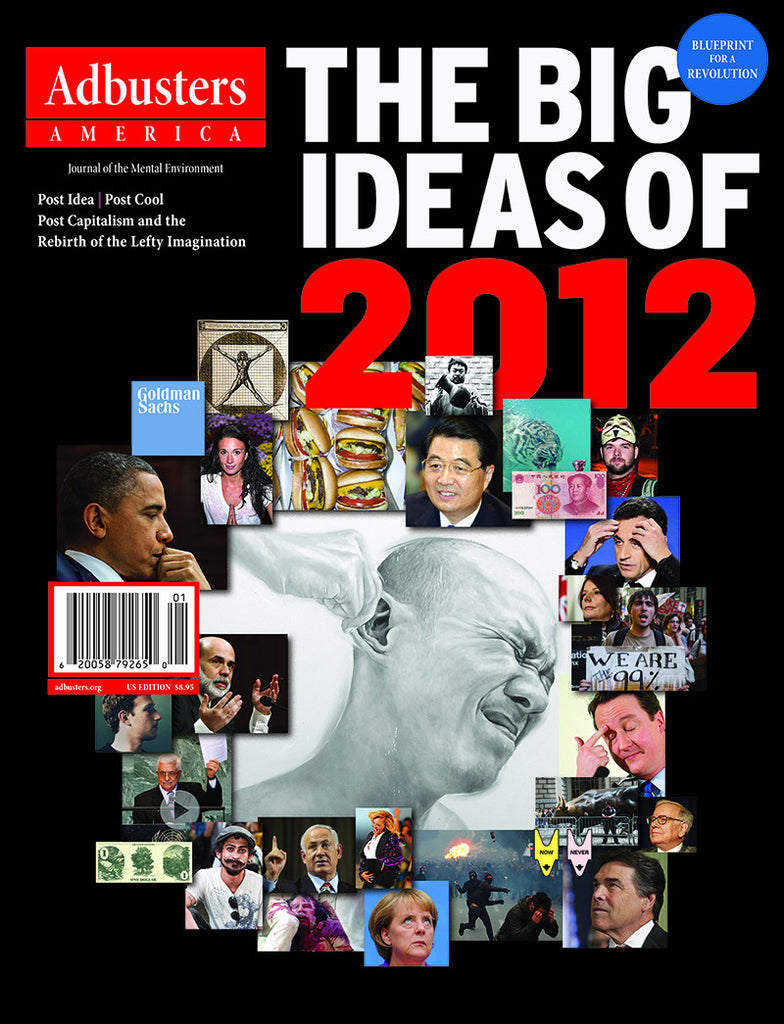
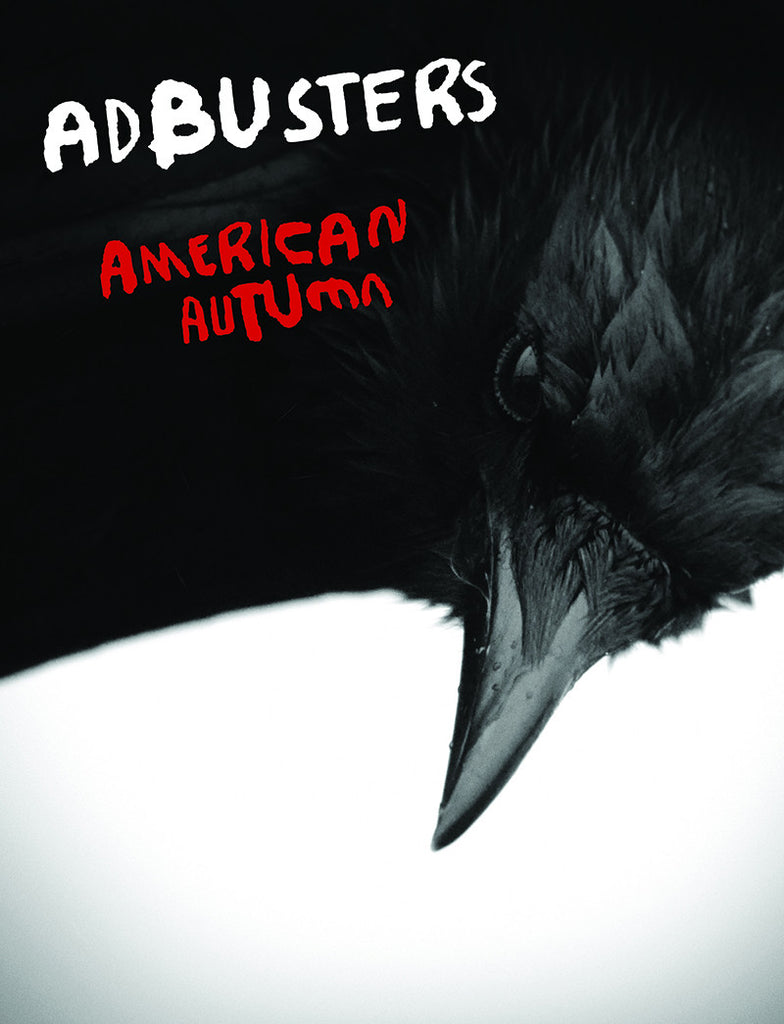


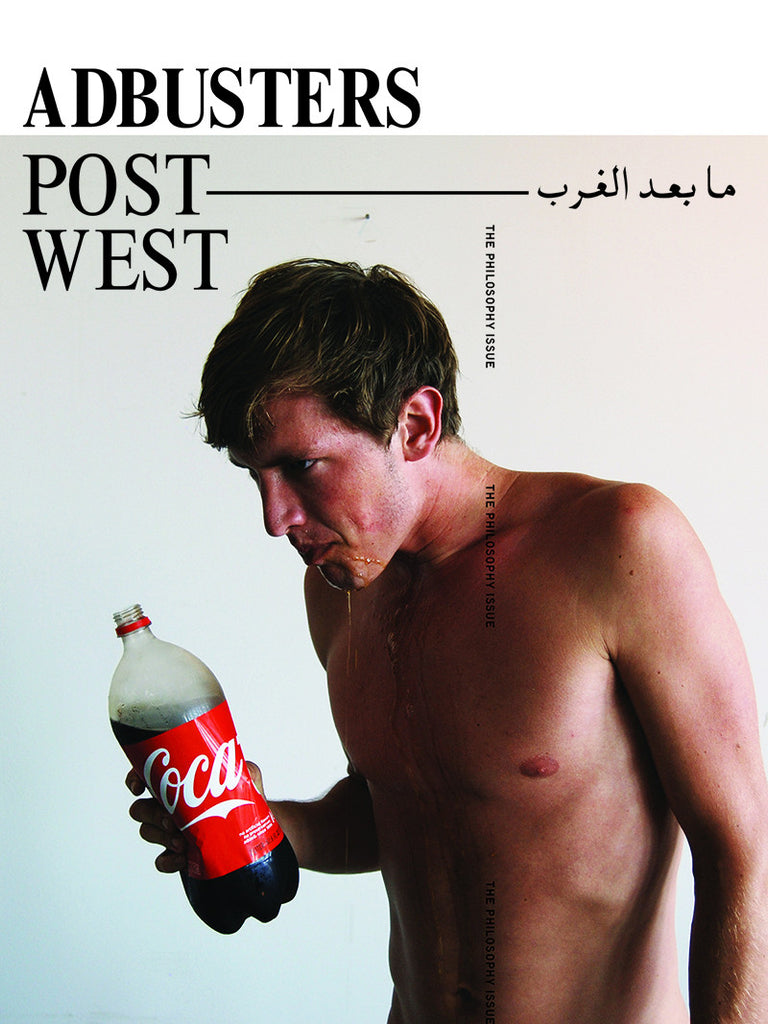
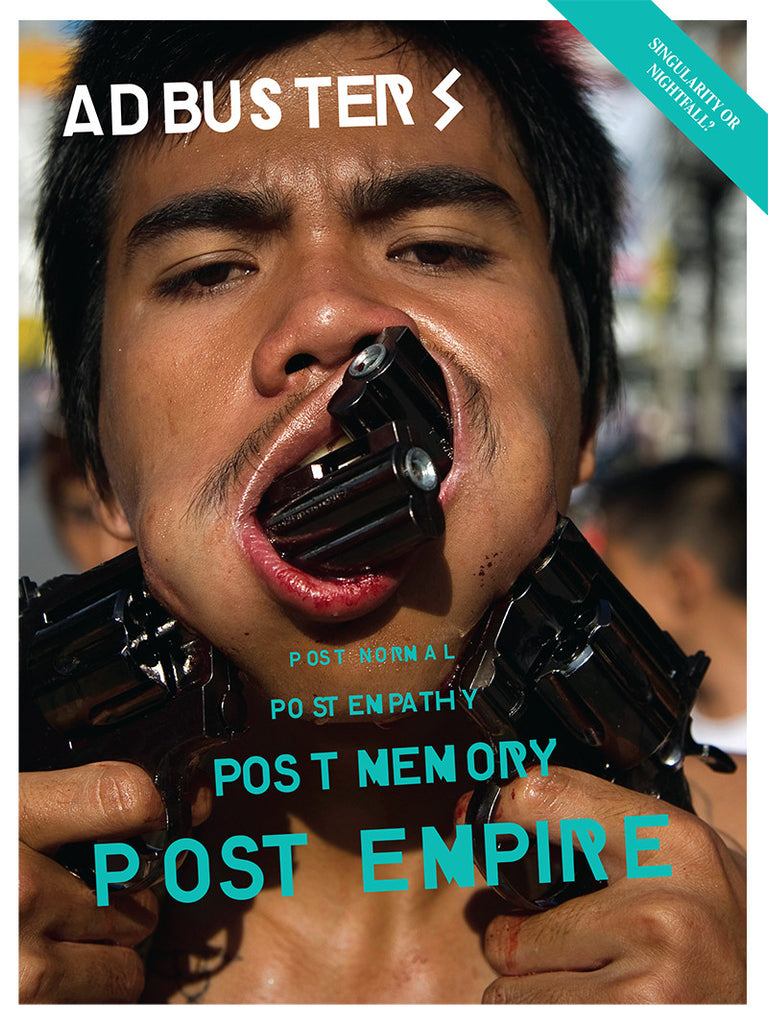
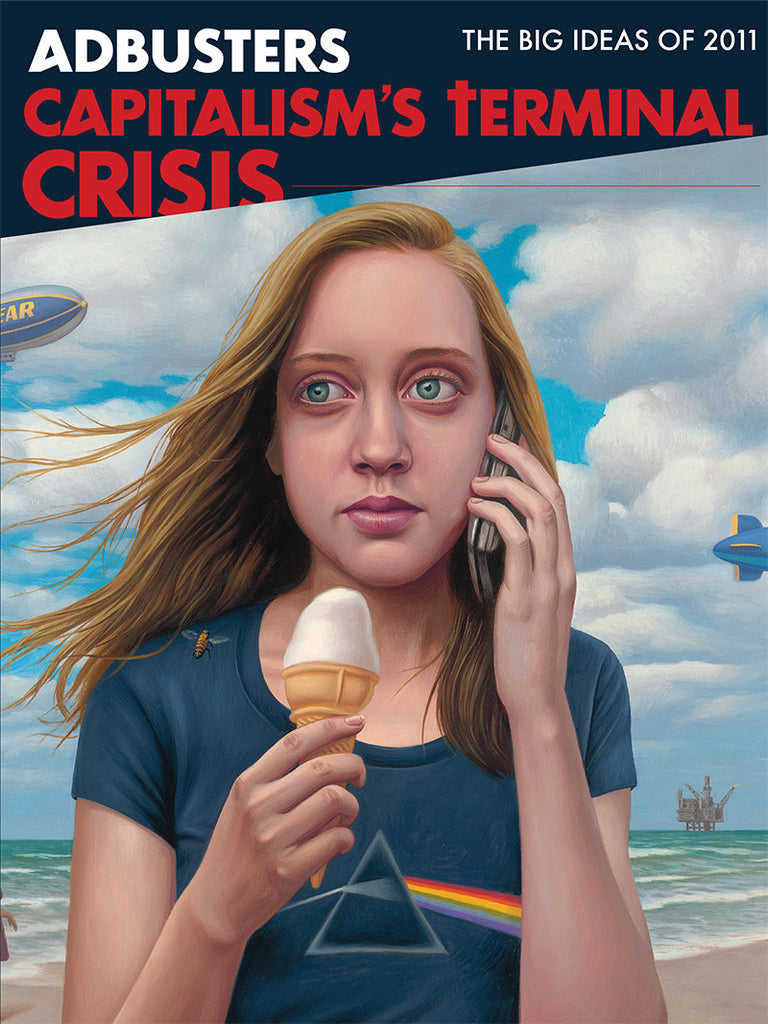
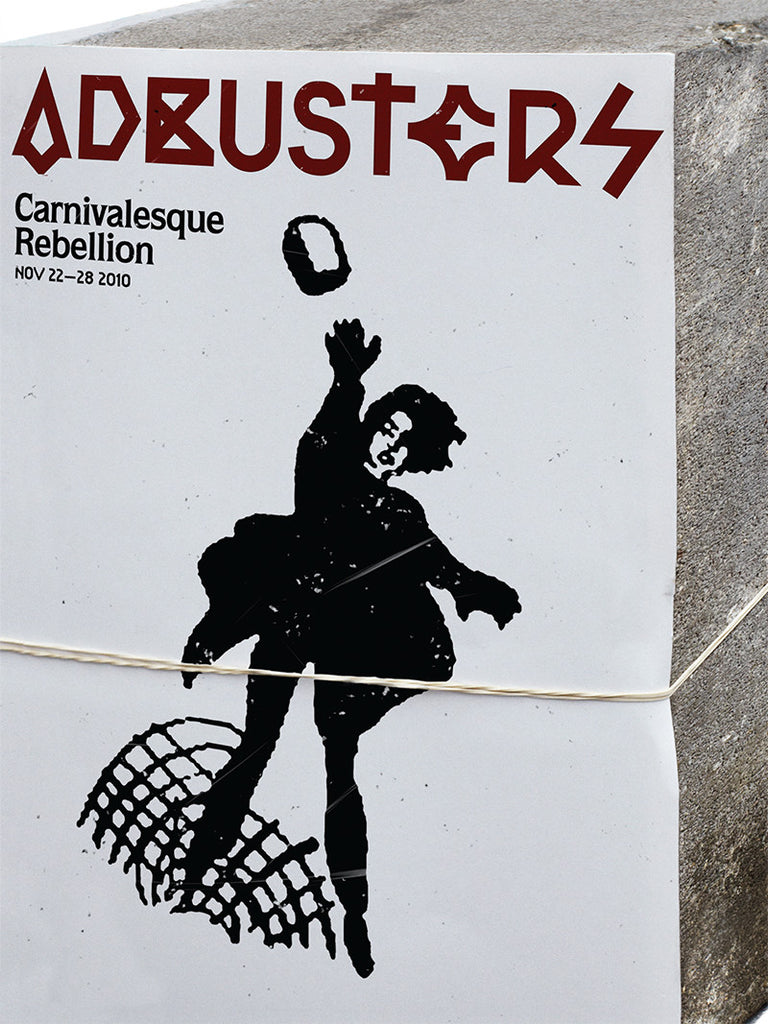
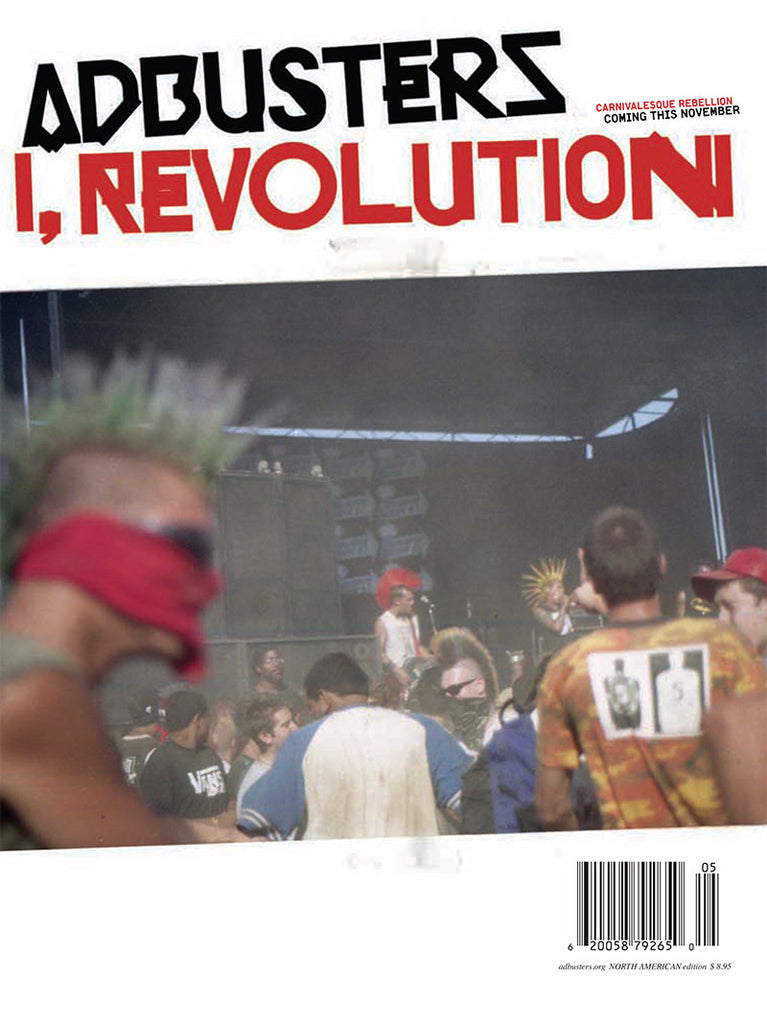
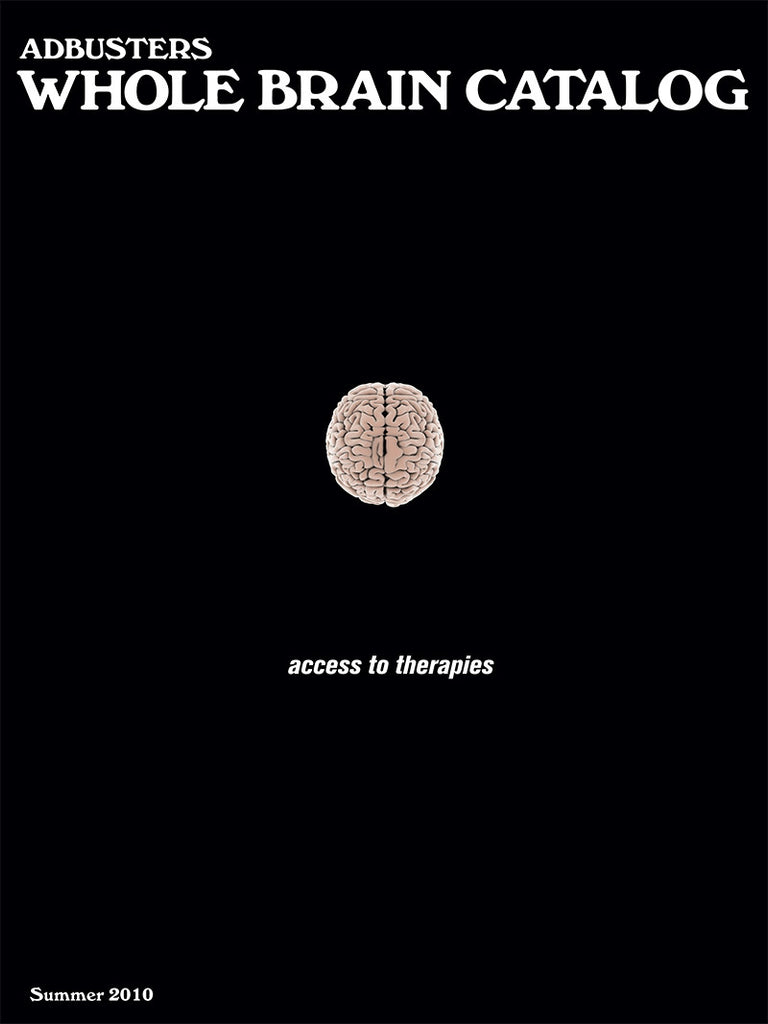
“Based in Vancouver, British Columbia, Canada, Adbusters is a not-for-profit, reader-supported, 120,000-circulation magazine concerned about the erosion of physical and cultural environments by commercial forces. Our work has been embraced by organizations like Friends of the Earth and Greenpeace, has been featured in hundreds of alternative and mainstream newspapers, magazines, and television and radio shows around the world.
Adbusters offers incisive philosophical articles as well as activist commentary from around the world addressing issues ranging from genetically modified foods to media concentration. In addition, our annual social marketing campaigns like Buy Nothing Day and Digital Detox Week have made us an important activist networking group.
Ultimately, though, Adbusters is an ecological magazine, dedicated to examining the relationship between human beings and their physical and mental environment. We want a world in which the economy and ecology resonate in balance. We try to coax people from spectator to participant in this quest. We want folks to get mad about corporate disinformation, injustices in the global economy, and any industry that pollutes our physical or mental commons.” (source)
Publisher Adbusters, Vancouver, British Columbia, Canada
ISSN: 0847-9097
PDF No 99: The Big Ideas of 2012
PDF No 98: American Autumn
PDF No 97: Post Anarchism – #OCCUPYWALLSTREET
PDF No 96: Apocalyptic Boredom
PDF No 95: Post West
PDF No 94: Post Normal
PDF No 93: Capitalism’s Terminal Crisis
PDF No 92: The Carnivalesque Rebellion Issue
PDF No 91: I, Revolution
PDF No 90: Whole Brain Catalog

